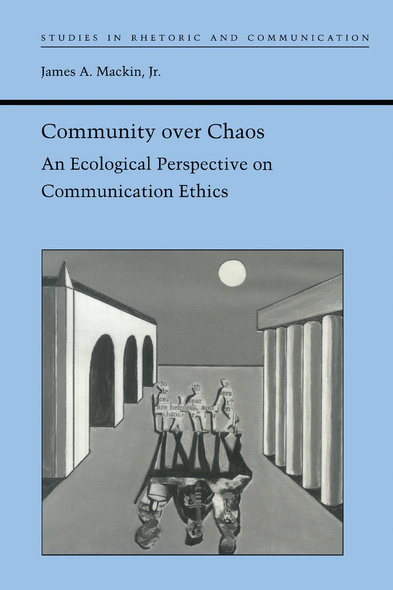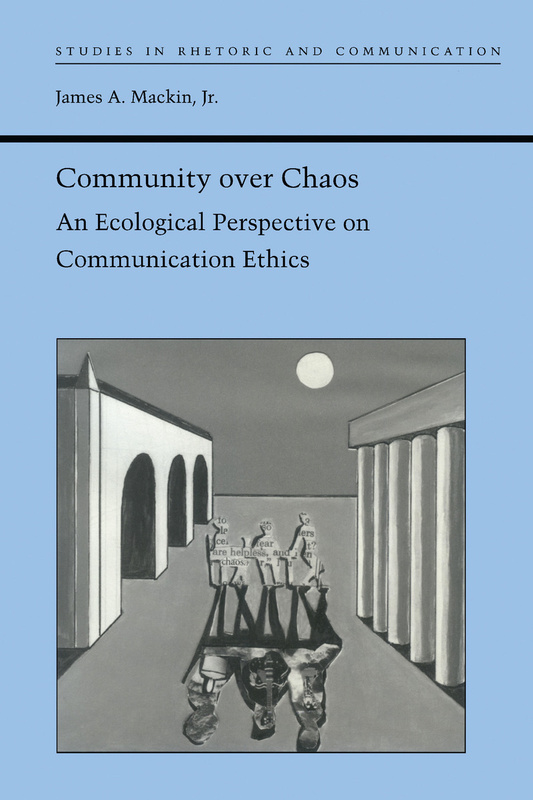Community over Chaos
An Ecological Perspective on Communication Ethics
This ecology of ethics seeks to balance the needs of the individual and those of the various levels of community.
As James A. Mackin, Jr., shows, both modernism and postmodernism have undermined the traditional foundations for ethics. Using an ecological model, however, Community over Chaos develops a common ground for ethical judgments about communication, thus countering the current theoretical climate of pessimistic cynicism toward the very possibility of ethics.
This theoretical pessimism is not merely an academic problem. The general public is becoming more and more disillusioned about the possibility of ethical communication. We are unable to teach principles of communicative ethics in our primary and secondary schools because we cannot agree on a common ground for those principles. Instead, we teach a narrow form of competence that is concerned primarily with short-term, individual success. Because our communities are built on our communicative practices, our inability to justify communicative ethics must ultimately lead to the disintegration of our communities.
Mackin's ecological model assumes that each of us is a communicative system operating within larger communicative systems that together form our communicative ecosystem. Virtues of the ecological approach are practical wisdom, based in fuzzy logic, and communicative openness and honesty.
Mackin recognizes the importance of both chaos and community in our communicative ecosystems. Chaos, as the source of originality and creativity, can contribute to growth and development; community provides the source of regularity and nurture that makes chaos endurable.
Mackin's work makes a meaningful contribution to thefield by elaborating an ecological perspective within the context of theissues and traditions now animating communication ethics. This book deservesthe attention of those who wish to learn what the best of the postmodernistshave to teach us without giving up the sense of communal responsibilitythat has distinguished the best of the rhetorical tradition.'
—John R. Lyne, University of Pittsburgh
Mackin has the intelligence and the forbearance to scrutinize seriously the multi-faceted critique of dogmatic humanism. But he has the courage and common sense not to give in to its hopelessness, insisting that we can build better communities that nurture happier individuals through ethical communication. For all who want to make something good from the fragments of the postmodern condition, this book is an inspiration. We have needed it for a long time.’
—Janice Rushing, author of Erotic Mentoring: Women's Transformations in the University and coauthor of Projecting the Shadow: The Cyborg Hero in American Film
James A. Mackin, Jr., is Associate Professor of Speech Communication at Tulane University.





